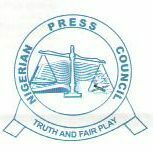NATIONAL WORKSHOP ON DEMOCRACY AND THE MEDIA
ABUJA SHERATON HOTEL AND TOWERS, MAY 21-23, 2000
One hundred and twenty participants were registered for the workshop. They were drawn from the media, academia, government, NGOs and international organizations.
The Vice President Alhaji Atiku Abubakar, represented by the Hon. Minister of Information Prof. Jerry Gana, declared the workshop open. Speeches were made by the Honourable Speaker of the House of Representatives Ghali Umar Na’Abba, the minister of information and the chairman of the Nigerian Press Council, Hadj Alade Odunewu.
Justice P.B. Sawant, president, World Association of Press Councils, presented the keynote address on Media and Democracy; A Global View.
Participants
NOTED that
- Democracy is now the dominant form of government all over the world, with Nigeria being one of 117 countries out of 188 in the UN system where democracy is practiced.
- Democracy necessarily calls for the involvement of an informed and educated citizenry who exercise their right of free speech and expression.
- In modern democracies, citizens can often not participate directly and depend on elected representatives.
- Given the complexity of modern lives, the media represent and speak on behalf of all sections of the society, particularly the voiceless.
- The media are thus critical to ensuring citizen participation in democracy, both to get information from the three arms of government, namely the Executive Legislation and Judiciary, as well as express their views on issues concerning them.
OBSERVED
- That the national interest is not coterminous with the interest of any particular government, despite efforts by government to make it appear so.
- The tendency within the media to over dramatise the conflicts and frictions arising from the return of democracy in Nigeria.
- The insufficient grasp of the nuances and technicalities of specialized beats, such as parliamentary reporting and the courts.
- Under reporting of the judiciary, given its key role as arbiter in a democratic setting.
COMMENDED
- The effort to institute a Freedom of Information Act in the National Assembly as a necessary measure to ensure that information, which is an essential ingredient for successful democratic practice, is readily available to the public through the media.
- The contributions of the Nigerian media to the birth and sustenance to date of Nigeria’s democracy.
In view of the above, participants
RECOMMENDED that
- The media have a key role in promoting the sustenance and integrity of Nigeria’s nascent democracy through objectives, balanced and responsible reportage and commentary;
- The media should be in the forefront in the promotion of the national interest as defined in Chapter Two of the Constitution of the Federal Republic of Nigeria 1999;
- Pluralism in media ownership and views is desirable to ensure a fair representation of the plural nature of the Nigerian society and in giving representation to under reported areas of Nigeria;
- To this end, investors should be encouraged to establish newspapers in their local communities so as to increase awareness in those communities;
- Training and retraining of media people is essential if the media would adequately perform their role as disseminators of information necessary for the sustenance of democracy;
- The proliferation of journalism associations should be discouraged because of their unsavoury effects on the industry;
- Professional groups within the media should be more active in enforcing observance of ethical standards by their members for the good of the profession and elimination of charlatans;
- Media owners should pay outstanding wages and consider improving the welfare of journalists through enhanced wages and allowances; and
- The central registration of journalists by the NUJ can substantially reduce the incidence of impersonation and should be commenced without any further delay.
- Closure of all unaccredited or unaccreditable journalism/mass communication institutions.
- The NUJ in the spirit of accountability should initiate a process to give a satisfactory account of how it utilized the N33m raised for the establishment of the Nigerian Mass Foundation.
- El-regulation through an empowered Press Council is critical to ensure that the watchdog is also kept in check by professionals.
